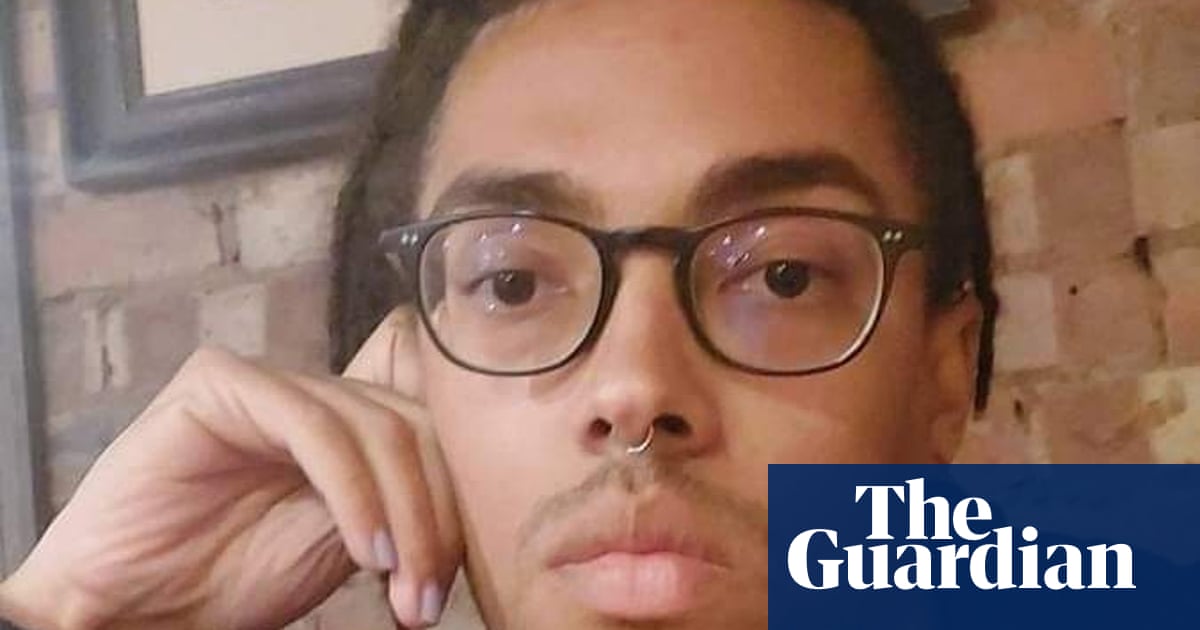Police acted in an “oppressive and unconstitutional manner” by arresting and detaining a protester for antisemitic chanting without making any inquiries as to what they allegedly said, a judge has found.
Despine Green, who was 22 at the time, was handcuffed, photographed, fingerprinted, had a DNA swab taken from the inside of their cheek and an officer mentioned that a strip search might be necessary.
The arrest, on suspicion of a racially or religiously aggravated public order offence, came after a man complained about antisemitic chanting at a Revolutionary Communist Group stall in Nottingham, relating to Palestinian self-determination, in 2020.
Following a four-day trial at Mansfield county court, Judge Jonathan Owen said it was wrong for police not to establish the facts and then apply objective analysis to them before arresting Green. He found that the arrest and handcuffing of Green was unlawful and ordered the chief constable of Nottinghamshire police to pay them £24,000 in damages, including £15,000 in punitive damages.
Owen said: “The essential problem, in this case, in my judgment, is that PC [David] Hawkins simply took and applied the label which had been applied towards the claimant’s alleged conduct (‘antisemitic’) without ascertaining any of the necessary underlying facts which demonstrate, on an objective and dispassionate basis, that such conduct was in fact antisemitic.
“He was not aware of any particular words used and did not seek clarification … as to what, particularly and precisely, was alleged to have been said.”
He said he believed that Hawkins and Sgt Graham Whitt were acting in good faith and the fact that senior officers did not seem to appreciate the errors in the officers’ decision-making suggested it was not isolated and others were also taking complaints at face value without exercising independent judgment.
“The defendants’ officers acted in an oppressive and unconstitutional manner … What happened in this case, in my judgment, was a really bad, unjustified, interference with freedom of speech,” said Owen.
Green, who is doing a PhD in Canada, said they were relieved at the judgment. “It was quite scary, especially because there was a mention of a strip search I always knew that I had not done anything wrong, but I think it’s certainly one of those worries whenever you are black and in custody and are vaguely aware of how the British police functions. It is a daunting time even if there’s not explicit racist treatment.
“This isn’t just specifically about me, this is about the rights of people to be able to speak out. It’s important that we defend these rights to free speech.”
Before Owen’s judgment, a jury had found that race was not a factor in Green’s arrest.
The content of the alleged chants was never identified. But Owen said there was a leaflet on the stall which said “Zionism is Racism”, which many people might find offensive and untrue but objectively “was not racist or antisemitic”. Nottinghamshire police accepted this analysis too.
Green was represented by Terence Channer of Scott-Moncrieff solicitors and Laurene Veale of Cloisters Chambers. Veale said: “These days criticism of Israel is too often wrongly conflated with antisemitism. This case shows that the police cannot make that mistake.
“The court has rightly recognised that the police can’t arrest a protester on a bare allegation of antisemitism without first checking the facts. It’s common sense, but apparently we needed a judge to say it.”
Nottinghamshire police said it would be seeking to appeal the judgment.
